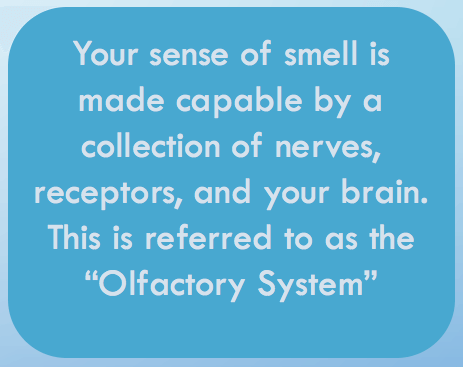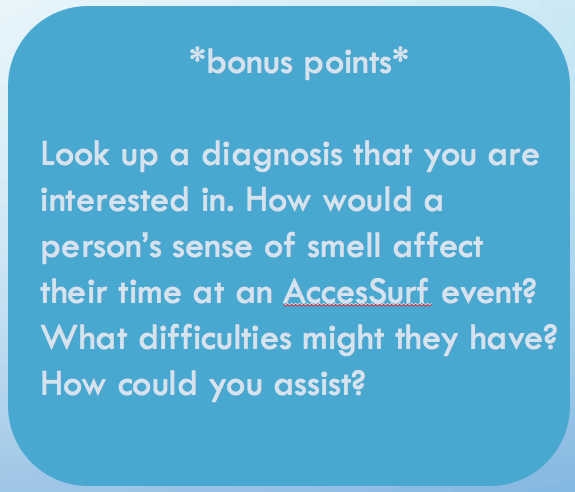Our sense of smell helps us recognize whether smells are:
- Dangerous
- Strong
- Faint
- Pleasurable
- Foul
We notice and understand all of these smells thanks to our olfactory system.

Olfactory System
Your sense of smell is closely related to your:
- Limbic System
a part of our nervous system that is responsible for emotions and memory
- this is why the smell of a certain flower might bring back memories of your college trip to Spain, even if you haven’t been there in years!
- Sense of Taste
helping to create the flavors that we taste in food
- this is why nothing seems to taste quite right when your nose is stuffy
A Healthy Olfactory System
- Allows us to tolerate smelling foods and odors in our environment without extreme reactions – even unpleasant odors (within reason)!
- Helps us know the difference between:
Good Smells

Bad Smells

Problems with Sense of Smell
You may be overly sensitive to smells
You may gag or even throw up when you encounter smells that are pleasant to most people
- like perfumes, lotions, or scented deodorant
You may pick up on and become distracted by smells that most people don’t even notice
- like the smell of a wetsuit, the shampoo you used to wash your hair, or the smell of the ocean
You may have decreased sensitivity to smells
You may crave certain smells, frequently holding non-food items to your nose to smell them
- Like neoprene material, a marker or pen at sign-in, or the soap they used to wash their hands
Those with decreased sensitivity may not have an understanding of “safe” versus “dangerous” smells, which can lead to safety issues (e.g. being drawn to strong smells like cleaning chemicals or strong-scented permanent markers).
What can I do?
Identify areas that have noticeable smells
Try your best to avoid these areas before the participant encounters them if you have reason to believe they may be problematic.
Recognize smells you find pleasant might be overwhelming or unpleasant for someone else.
Before events, avoid using:
- perfumes or colognes
- scented deodorant or lotions
- overpowering shampoos or soaps
Common Diagnoses with Olfactory Problems
- Autism Spectrum Disorders
- Sensory Processing Disorder
- Parkinson’s Disease
- Alzheimer’s Disease


